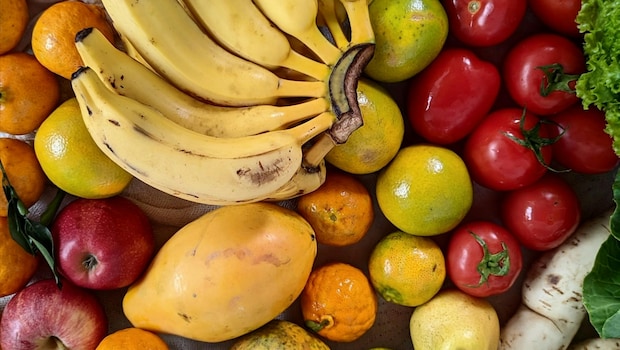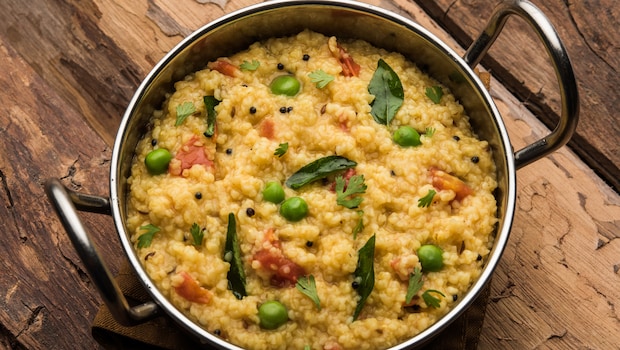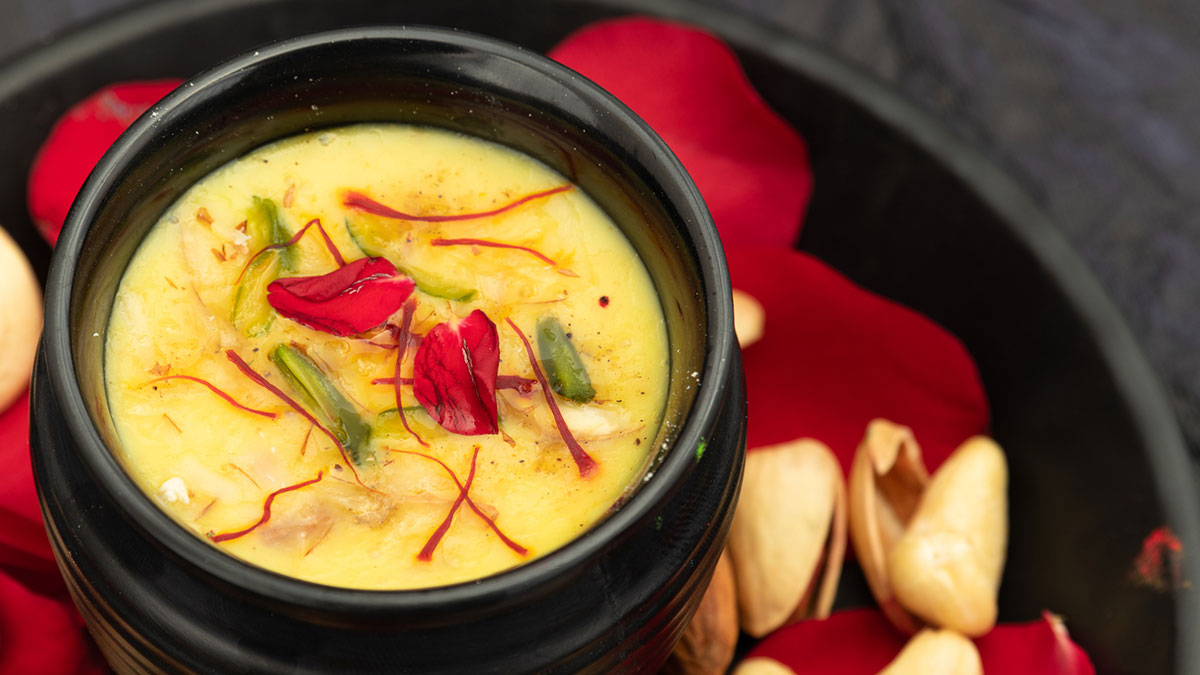Indian food is nothing if not versatile. From the tang of tamarind in a South Indian rasam to the warmth of ajwain in a North Indian paratha, our kitchens thrive on adaptability. We do not just cook, we respond to the weather, to the festivals, to our moods, and most importantly, to the season. As the calendar turns to September, our plates begin to reflect a quiet transition. The monsoon's damp heaviness starts to lift, and with it comes a shift in what our bodies crave and tolerate. The same pakoras that comforted us in July may now feel too greasy. The chilled lassi that soothed us in August might suddenly feel too cold. This is where seasonal eating steps in to align our diet with nature's rhythm.
Also Read: 12 Comfort Foods for Every Season You Need to Try
Why Seasonal Eating Is Important In September?
Seasonal eating is about choosing foods that support immunity, aid digestion, and help us adapt to the changing climate. In September, this means tuning into the monsoon-to-autumn shift with clarity and care.
September sits at the cusp of Bhadrapada and Ashwin, two periods in the Hindu calendar that mark the move from humid monsoon to cooler autumn. While the weather becomes more pleasant, the body faces new challenges, including digestive sluggishness, skin allergies, and seasonal infections like colds, coughs, and viral fevers.
According to Ayurveda, this is when Vata dosha begins to rise, making the body more prone to dryness, fatigue, and imbalance. Eating foods that are warm, grounding, and easy to digest can help restore harmony and keep seasonal discomforts at bay.
Also Read: Have A Seasonal Flu? 6 Nutritionist-Approved Foods That May Help

Seasonal Foods. Photo Credit: iStock
What To Eat In September: The Seasonal Must-Haves
Eating with the season means choosing ingredients that naturally support your body's needs during the monsoon-to-autumn shift. These are the foods to prioritise in September:
1. Best Vegetables For September
Light and hydrating vegetables such as bottle gourd, ridge gourd, pumpkin, spinach, and bitter gourd are gentle on digestion and aid post-monsoon recovery. Bitter vegetables like karela are especially beneficial as they help detoxify and regulate blood sugar.
Cooking tip: Steam or saute vegetables instead of frying to preserve nutrients and keep meals light.
2. Seasonal Fruits In September
Fruits like pomegranate, pear, apple, guava, and papaya are rich in fibre and antioxidants, making them natural immunity boosters. Lifestyle coach Luke Coutinho notes that seasonal fruits such as guava and papaya are "naturally aligned with what your body needs. They are rich in vitamin C, aid digestion, and reduce bloating".
3. Grains For September Diet
Whole grains like brown rice, barley, and millets are warming, fibrous, and support healthy digestion. Millets such as foxtail and kodo are often highlighted in Ayurvedic diets for their ability to balance Vata during seasonal transitions.
Cooking tip: Boil or pressure cook grains to make them easier to digest and to ensure fibre is well absorbed.
4. Protein-Rich Foods For September
Moong dal, chickpeas, and fermented foods like idli, curd, and buttermilk offer sustained energy while supporting gut flora. Fermented foods also boost immunity and improve digestion. Nutritionist Mala Sharma explains that "light dals and fermented foods like buttermilk are ideal during monsoon-to-autumn months as they are easy on the stomach and rich in probiotics". Adding garlic and turmeric while cooking dals enhances both flavour and immunity.
5. Spices And Herbs For Immunity
Turmeric, garlic, ginger, Tulsi, and pepper are staples that strengthen immunity and aid digestion. Turmeric's curcumin and garlic's allicin are valued for their anti-inflammatory properties, while Tulsi and ginger help reduce seasonal fatigue and congestion.
Cooking tip: Add garlic and turmeric to soups, curries, or teas for an extra protective boost.
6. Healthy Beverages In September
Gentle drinks such as herbal teas made with mint, lemongrass, or basil soothe the gut and hydrate the body. Light soups prepared with seasonal vegetables and warming spices also aid digestion and immunity. A pinch of pepper or cumin can add warmth and balance.
And if you are short on time, many health cafés now offer seasonal soups and herbal teas made with Tulsi, mint, or lemongrass. Whether you brew them at home or order in, the benefits remain.

Seasonal Foods. Photo Credit: iStock
What Foods To Avoid In September?
As September brings the tail end of monsoon and the early signs of autumn, the body becomes more prone to sluggish digestion, water retention, and seasonal infections. Steering clear of certain foods can help maintain balance and prevent discomfort.
1. Street Food And Fried Snacks
In September, humidity still lingers, creating conditions where bacteria thrive. Eating fried street snacks like samosas and pakoras at this time not only slows digestion but also increases the risk of stomach upsets and skin breakouts. Nutritionist Lovneet Batra advises avoiding deep-fried foods during this seasonal change.
Better swap: Opt for steamed or lightly sauted snacks that provide flavour without stressing the gut.
2. Heavy Dairy Foods
As Vata levels rise in September, digestion weakens and the body becomes prone to mucus formation. Milk and cream-heavy dishes often aggravate these issues. Instead, lighter probiotic options like curd, chaas, or buttermilk help cool the system while keeping the gut flora balanced.
3. Watery Fruits
Fruits such as watermelon and muskmelon may seem refreshing, but in September's humid climate, they contribute to water retention and sluggish digestion. Luke Coutinho explains that "while watermelon is hydrating, it is best avoided when digestion is more vulnerable". Seasonal fruits like papaya, guava, and apple are far more suitable now as they are fibrous and warming.
4. Heavy Meats And Spicy Gravies
As temperatures begin to dip, heavy red meats and spice-laden gravies become harder to digest and may trigger acidity or lethargy. The seasonal transition calls for lighter preparations that are easier on the stomach.
Better swap: Choose grilled lean meats or stews with seasonal vegetables, which are warming but not overwhelming.
5. Raw Salads And Uncooked Sprouts
September is not the best time for raw greens, as the gut is more sensitive after the damp monsoon. Raw salads and uncooked sprouts can be harsh, causing bloating or infections. Lightly steaming or sautéing vegetables makes them safer and more digestible during this transition.
6. Sour Foods
Tangy foods such as tamarind, lime, vinegar dressings, and even excessive tomatoes can aggravate acidity when the weather is in flux. With Vata on the rise, sour foods often worsen digestive imbalance.
Better swap: Amchur (dry mango powder) or roasted jeera give the same tang without irritating the stomach.
Also Read: 8 Lunchbox Mistakes You Should Avoid During Monsoon

Seasonal Foods. Photo Credit: iStock
5 Nutritious Indian Dishes For September:
These dishes are curated to support digestion, balance Vata, and keep your gut happy as the season shifts. Each one is rooted in Indian tradition and easy to make. That's not all. Many of these dishes are also available at health cafes and delivery kitchens - just search your favourite food app for seasonal options.
1. Mixed dal khichdi with seasonal vegetables
A comforting one-pot meal made with moong, masoor, and toor dal, brown rice or millets, and veggies like bottle gourd and spinach. Add cumin, ginger, and turmeric for digestive support.
2. Chana masala with bajra roti
Chickpeas are rich in fibre and protein. Cook them with ginger, garlic, and tomatoes, and pair with bajra roti spiced with ajwain or methi to prevent bloating.
3. Sambar with red rice
Toor dal, curry leaves, and tamarind come together in this South Indian staple. Add seasonal vegetables like pumpkin and drumsticks for extra nutrition. Red rice brings warmth and fibre to the meal.
4. Spinach and moong dal soup
This light and warming soup is made with blanched spinach, moong dal, garlic, and pepper. It is easy on the gut, rich in iron, and perfect for cooler evenings.
5. Curd and sattu buttermilk
Blend fresh curd with roasted sattu, cumin, and mint. This probiotic-rich drink cools the body, aids digestion, and balances gut flora.
Also Read: 10 Food Habits You Can Change to Save the Earth

Seasonal Foods. Photo Credit: iStock
Your Seasonal Reset Starts In The Kitchen
Seasonal eating is about listening to your body, respecting nature's cycles, and choosing foods that heal, not just fill. This September, skip the fad diets and trust the wisdom of local, seasonal produce. When you eat with the season, you do not just nourish your body, you align with balance and wellbeing. Eat healthy, stay fit.
Disclosure: This article may contain links to third-party websites or resources. However, this does not affect the integrity of the content, and all recommendations and views are based on our independent research and judgment.
About Somdatta SahaExplorer- this is what Somdatta likes to call herself. Be it in terms of food, people or places, all she craves for is to know the unknown. A simple aglio olio pasta or daal-chawal and a good movie can make her day.








